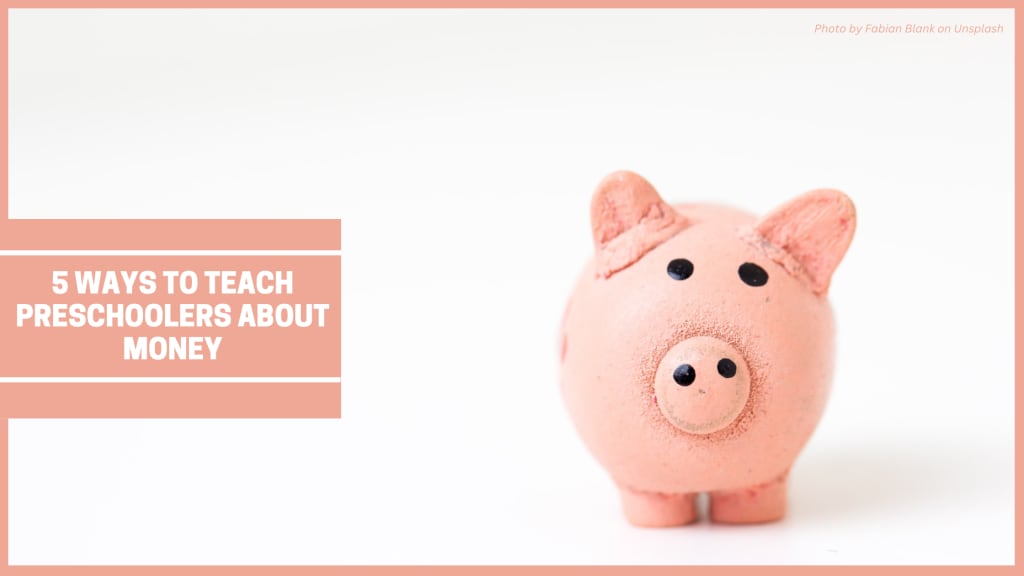5 Ways to Teach Preschoolers about Money
If you have a preschooler, who attends a preschool having preschool interactive activities here are five ways to teach your child about money.

Money is a "best-of-both-worlds" topic. Having money as an adult is fantastic. It's enjoyable to spend it. It can even be exciting to save it. However, not having enough of it or having it all go to absolute necessities can be stressful and discouraging. Many adults probably wish they had received more financial advice when they were younger. The good news is that it's never too early to start teaching your child about money. If you have a preschooler, who attends a preschool having preschool interactive activities here are five ways to teach your child about money.
1. Practice Counting & Exchanging
According to one study, people develop basic financial behaviors by the age of seven.
Don't get too worked up. The practices of counting and exchanging are referred to as "basic financial behaviors."
Count anything and everything for counting exercises, making sure to include play coins and paper money. Work on identifying and counting different coin values with older preschoolers.
Exchanging exercises is a little more difficult, but it is extremely important. "Exchange" refers to the idea that something must be given up in order to make a purchase, and that once spent, it is gone forever. So pretend to shop around the house or go grocery shopping in the pantry. Make them hand over money at the register before walking out of the "store," just like in real life. You can also teach them the concept of exchange in everyday situations. When shopping, use cash in front of them. If you're paying with a credit or debit card, show them your receipt so they can see how much money was exchanged to bring the items home.
2. Practice Saving
The realization that things cost money should be quickly followed by the realization that money can (and should) be saved.
The most effective way to accomplish this is to talk positively about saving. Tell your children on occasion that you chose not to spend money on something so that you could spend it on something more important. And every time your child chooses to save rather than spend, lavish them with praise.
Don't get too lofty with the concept; instead of telling them how important it is to save for something vague like "the future," help them save money for a toy they want to buy. Using a clear jar instead of a piggy bank for their money is an easy way to get kids on board with saving money. It may appear too simple to be true, but the agony of seeing their once healthy account dwindle to nothing can be enough to make them reconsider their purchase.
Experts recommend purchasing three containers say "SPEND," "SAVE," and "GIVE." Kids can better visualize how much money they have and what it is used for this way.
3. Share the Value of Giving
When it comes to giving, make sure that generosity is part of the money discussions you have with your children. As humans, we do not begin our days thinking about other people. Use money conversations to talk about gratitude and thinking about others. Instilling financial generosity in children at a young age will aid in combating our human tendency to hoard and succumb to greed.
If you decide to use a "GIVE" jar with your children, assist them in deciding how they will spend the money. Inform them that they can donate to a charity or directly to another person. But don't make the decision for them. If they give to a cause that is important to them, they will enjoy the process.
4. Create Opportunities to Earn Money
Earning an allowance or doing extra chores for extra money, especially for older children, provides you and your child with an excellent opportunity to discuss work, money, and "doing your part" within the family. Check out our article on chores for advice on which chores should and should not be paid.
5. Model Good Behavior
Here we are once more... reminding you that one of the most effective ways to teach your child is to lead by example.
But it is correct! Children look to their parents for almost everything. (The rules are not made by us...) Although perfection is not expected, do your best to practice what you preach when it comes to money.
Showing your child what good spending habits look like on a regular basis will help guide them as they learn more about money and financial responsibility.
Without going into too much detail, be honest about how much things can cost at times and the sacrifices you must make to pay for the necessities, such as rent, food, insurance, and gas.
Remember to celebrate with your children when your efforts to save money pay off! When you FINALLY have enough money to go on vacation, make sure your children understand that you worked hard to save for the trip and that the money did not appear out of thin air.
Money may appear to be a difficult topic for children, but we are not asking them to invest in the stock market. Begin small and gradually involve your children in financial discussions as they grow. You might be surprised at how much your consistent, minor conversations affect their lives.
About the Creator
Amit Kumar
Full-time thinker & part-time writer...






Comments
There are no comments for this story
Be the first to respond and start the conversation.